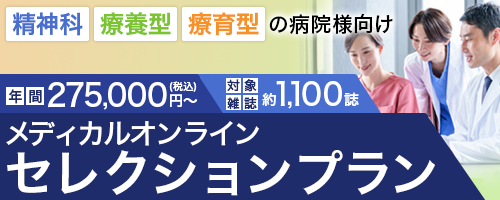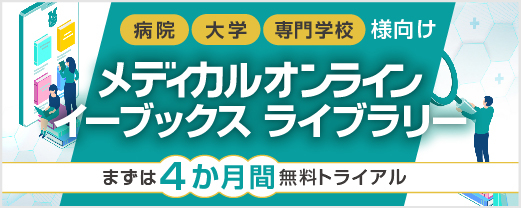アブストラクト
Japanese
| Title | 倦怠感のある終末期がん患者に関わる家族の体験 |
|---|---|
| Subtitle | 原著 |
| Authors | 田代理沙, 土井英子, 増島麻里子 |
| Authors (kana) | |
| Organization | 千葉大学大学院看護学研究科, 神奈川県立保健福祉大学保健福祉学部看護学科, 千葉大学大学院看護学研究院 |
| Journal | 千葉看護学会会誌 |
| Volume | 27 |
| Number | 2 |
| Page | 39-47 |
| Year/Month | 2022 / 2 |
| Article | 原著 |
| Publisher | 千葉看護学会 |
| Abstract | 本研究の目的は, 倦怠感のある終末期がん患者に関わる家族の体験を明らかにし, 倦怠感のある終末期がん患者に対する家族を含めた看護支援を検討することである. 家族5名を対象に半構造化面接を行い, 患者に関する情報は記録調査を行った. 面接内容を質的帰納的に分析したところ, 【倦怠感により患者の体力や気力がこれまでとは一変していると実感する】【倦怠感がありながらも日常生活を調整し, これまでの立場を維持しようと努めていると思う】【治療経過や現在直面している状況から倦怠感の原因を考える】【患者の安寧を第一に考え, できることは何でもしようと奮闘する】【倦怠感を緩和しようと試行錯誤するが, 太刀打ちできないと感じる】【倦怠感のある患者に対する薬剤や医療者の関わり方を期待する】【家族自身の安寧を守ろうとする】の7つのコアカテゴリーに集約された. 結果より, 倦怠感のある終末期がん患者に関わる家族の体験には, "これまでの患者と現在の患者を総括して倦怠感のある患者を捉えようとする体験", "倦怠感のある患者の安寧を追求し自ら奮闘する体験", "患者を支援しながら自身の安寧を守ろうとする体験"の3つの特性が明らかとなった. 看護支援として, 倦怠感がありながらも役割を維持しようとしている患者を理解することや, これまでの治療経過に対する患者と家族の思いを理解し, 終末期の過ごし方を考えることを支援することが必要であると考えられる. |
| Practice | 看護学 |
| Keywords | cancer, fatigue, end-of-life, experiences of family members |
English
| Title | EXPERIENCES OF FAMILY MEMBERS CONCERNING CANCER PATIENTS WITH FATIGUE AT THE END-OF-LIFE |
|---|---|
| Subtitle | Original Articles |
| Authors | Risa Tashiro*1, Fusako Doi*2, Mariko Masujima*3 |
| Authors (kana) | |
| Organization | *1:Graduate School of Nursing, Chiba University, *2:School of Nursing, Faculty of Health and Social Services, Kanagawa University of Human Services, *3:Graduate School of Nursing, Chiba University |
| Journal | Journal of Chiba Academy of Nursing Science |
| Volume | 27 |
| Number | 2 |
| Page | 39-47 |
| Year/Month | 2022 / 2 |
| Article | Original article |
| Publisher | Chiba Academy of Nursing Science |
| Abstract | The objective of this study was to clarify the experiences of family members concerning cancer patients with fatigue at the end-of-life and consider nursing support for such patients and their families. Record surveys regarding patient information were conducted along with semi-structured interviews with the families of five cancer patients. The results of the qualitative and inductive analyses of the data comprised seven core categories, including "patients' physical strength and energy have changed completely due to fatigue," "patients are trying to maintain their social positions or family roles," "patients' families think about the cause of patients' fatigue from the treatment progress and their current situation," "families struggle to do whatever they can to put patients' well-being first," "families try to alleviate patients' fatigue, but feel like they can't," "families expectations about the involvement of medicines and the interactions of medical practitioners with patients," and "preserve families' own well-being." The results revealed three characteristics of the experiences of family members concerning cancer patients with fatigue at the end-of-life: "trying to understand the patient by analyzing their past and present states," "pursue and struggle for patient's well-being," and "preserve their own well-being while supporting the patient." The results show that the following nursing supports for patients and family members are required in this situation: understanding the patients' efforts to maintain their roles, understanding their feelings toward the treatment progress, and supporting their thought process about how they want to spend patient's end-of-life. |
| Practice | Nursing |
| Keywords | cancer, fatigue, end-of-life, experiences of family members |
- 全文ダウンロード: 従量制、基本料金制の方共に770円(税込) です。
参考文献
- 1) 渡辺正:【がん患者の倦怠感と緩和ケア】がん患者の倦怠感 その原因と病態, 看護技術, 51(7): 581-584, 2005.
- 2) Merchant SJ, Brogly SB, Booth CM, et al.: Palliative Care and Symptom Burden in the Last Year of Life: A Population-Based Study of Patients with Gastrointestinal Cancer, Ann Surg Oncol, 26(8): 2336-2345, 2019.
- 3) Verkissen MN, Hjermstad MJ, Van Belle S, et al.: Quality of life and symptom intensity over time in people with cancer receiving palliative care: Results from the international European Palliative Care Cancer Symptom study, PLoS One, 14(10): e02229881, 2019
- 4) Berger AM, Mooney K, Alvarez-Perez A, et al.: National comprehensive cancer network. Cancer-Related Fatigue, Version 2. 2015. J Natl Compr Canc Netw, 13(8): 1012-1039, 2015.
- 5) Pickard-Holley S: Fatigue in cancer patients. A descriptive study. Cancer Nurs, 14(1): 13-19, 1991.
残りの21件を表示する
- 6) Nail LM, Winningham ML: Fatigue and weakness in cancer patients: the symptoms experience. Semin Oncol Nurs, 11(4): 272-278, 1995.
- 7) Passik SD, Kirsh KL, Donaghy K, et al.: Patient-Related Barriers to Fatigue Communication: Initial Validation of the Fatigue Management Barriers Questionnaire, Journal of Pain and Symptom Management, 24(5): 481-493, 2002.
- 8) 神里みどり:【がん患者の倦怠感と緩和ケア】がん患者の倦怠感のアセスメント, 看護技術, 51(7): 585-591, 2005.
- 9) 横田美智子, 秋元典子: 在宅で終末期癌患者を介護した家族の体験, 日本がん看護学会誌, 22(1): 98-107, 2008.
- 10) 北野綾: ホスピス外来に通院するがん患者とともに生きる家族の体験の意味, 日本看護科学会誌, 25(2): 12-19, 2005.
- 11) 石井容子, 宮下光令, 佐藤一樹他: 遺族, 在宅医療・福祉関係者からみた, 終末期がん患者の在宅療養において家族介護者が体験する困難に関する研究, 日本がん看護学会誌, 25(1): 24-36, 2011.
- 12) 福井小紀子: 入院中の末期がん患者の在宅療養移行の実現に関連する要因の検討 全国調査の実施, 病院管理, 43(4): 299-309, 2006.
- 13) 樺澤三奈子: 術後補助化学療法を受ける肺がん患者の倦怠感のセルフマネジメントに関する研究 倦怠感のとらえ方, 取り組み, 支援ニーズの特徴, せいれい看護学会誌, 2(2): 10-18, 2012.
- 14) Lindqvist O, Widmark A, Rasmussen BH: Reclaiming wellness--living with bodily problems, as narrated by men with advanced prostate cancer. Cancer Nursing, 29(4): 327-337, 2006.
- 15) 国立がん研究センター: がん診療連携拠点病院等院内がん登録2021年3年生存率, https://www.ncc.go.jp/jp/information/pr_release/2020/0808_1/index.html (検索日 2021年9月24日)
- 16) Oh HS, Seo WS: Systematic review and meta-analysis of the correlates of cancer-related fatigue, Worldviews Evid Based Nurs, 8(4): 191-201, 2011.
- 17) Dong ST, Butow PN, Tong A, et al.: Patients' experiences and perspectives of multiple concurrent symptoms in advanced cancer: a semi-structured interview study, Support Care Cancer, 24(3): 1373-1386, 2016.
- 18) Ohnsorge K, Rehmann-Sutter C, Streeck N, et al.: Wishes to die at the end of life and subjective experience of four different typical dying trajectories. A qualitative interview study, PLoS One, 14(1): e0210784, 2019.
- 19) 柴田純子, 佐藤まゆみ, 増島麻里子他: 日本における終末期がん患者を抱える家族員の体験, 千葉看護学会会誌, 16(2): 19-26, 2011.
- 20) 佐藤まゆみ, 増島麻里子, 柴田純子他: 終末期がん患者を抱える家族員の体験に関する研究, 千葉看護学会会誌, 12(1): 42-49, 2006.
- 21) 田中久美子, 山上祐実, 大庭桂子他: 消化器がん終末期患者の家族における体験プロセス, 緩和ケア, 22(1): 73-78, 2012.
- 22) 佐藤恵子: 在宅緩和ケアを受けている終末期がん患者の倦怠感の体験, 日本がん看護学会誌, 27(2): 83-89, 2013.
- 23) 柴田純子, 佐藤まゆみ, 増島麻里子他: 日本における終末期がん患者を抱える家族員の体験, 千葉看護学会会誌, 16(2): 19-26, 2011.
- 24) 篠塚裕子, 稲垣美智子: 病院で死を迎える終末期がん患者の家族の添う体験, 日本看護科学会誌, 27(2): 71-79, 2007.
- 25) Rodenbach RA, Norton SA, Wittink MN, et al.: When chemotherapy fails: Emotionally charged experiences faced by family caregivers of patients with advanced cancer, Patient Educ Couns, 102(5): 909-915, 2019.
- 26) 久松美佐子, 丹羽さよ子: 終末期がん患者の家族の不安への対処を支える要因, 日本看護科学会誌, 31(1): 58-67, 2011.



